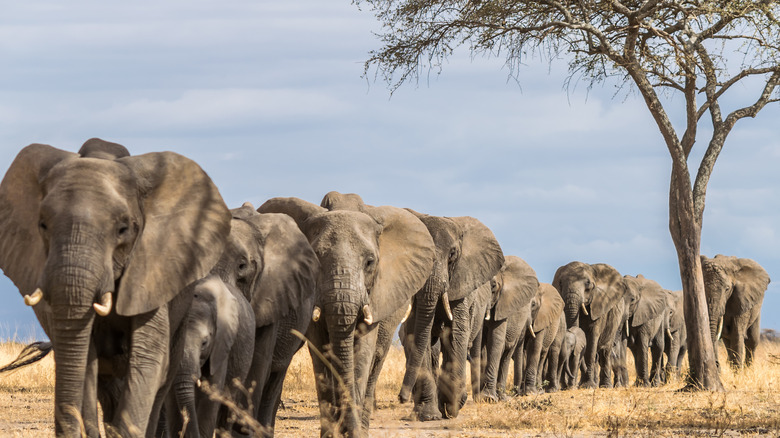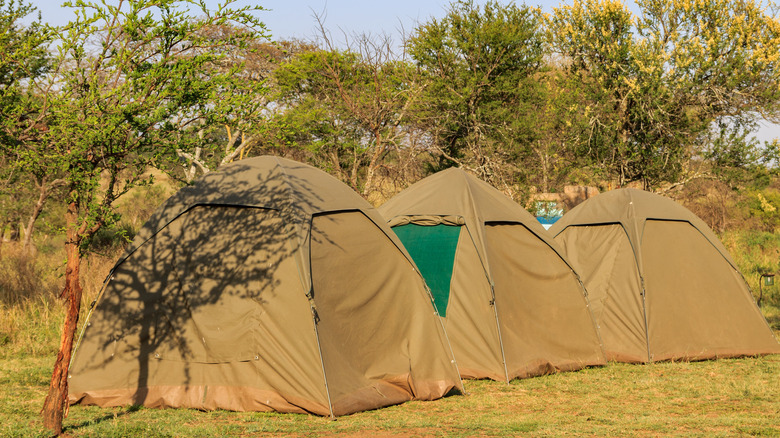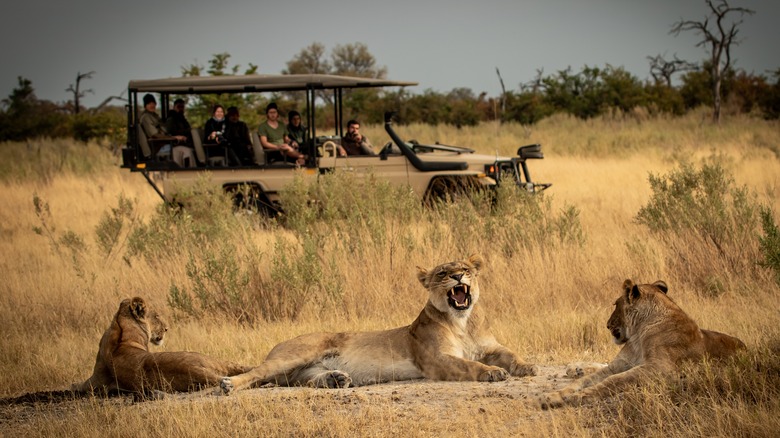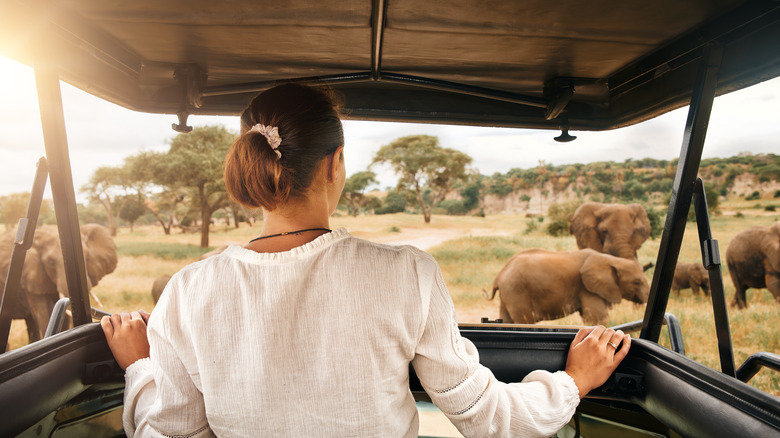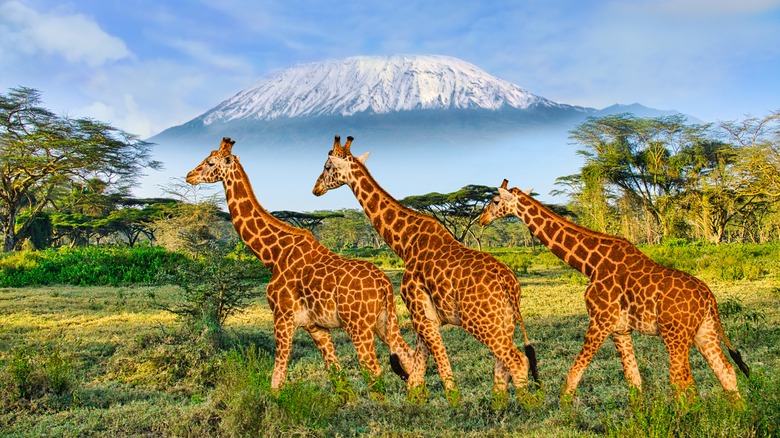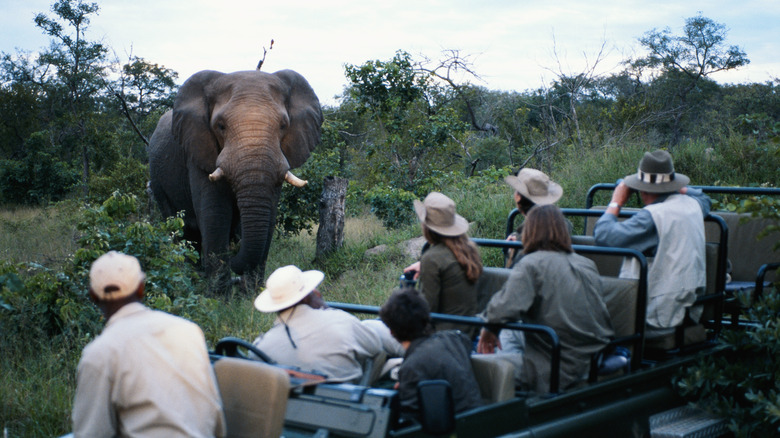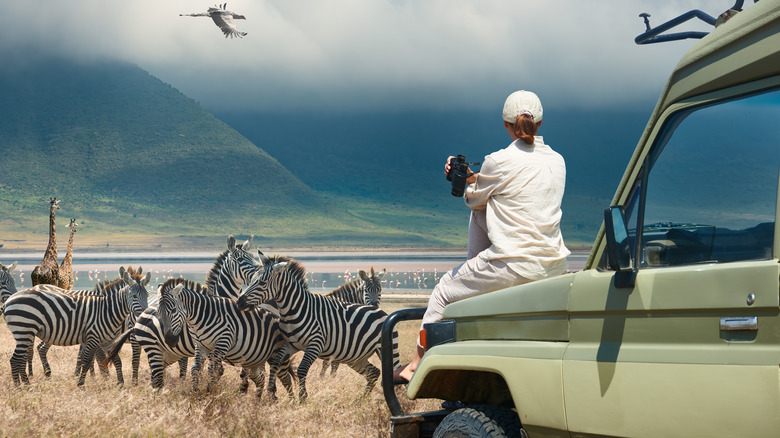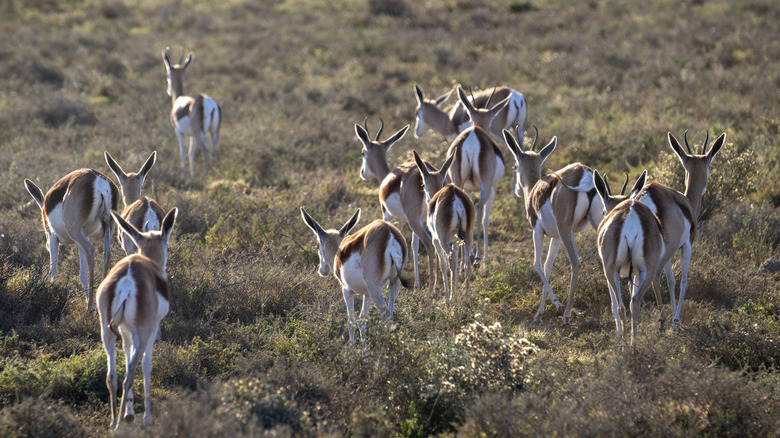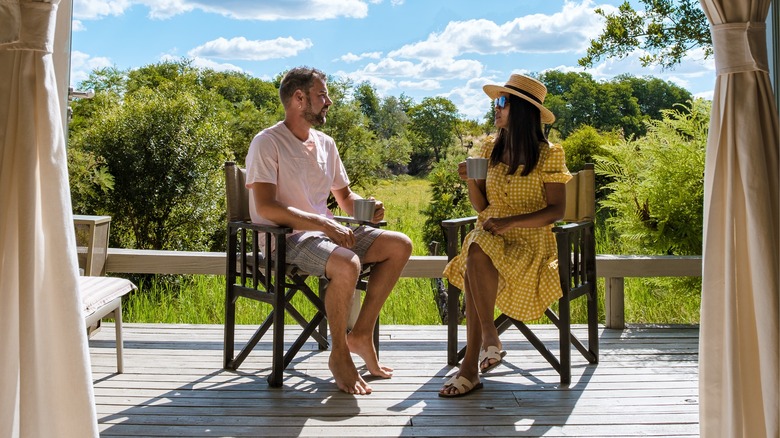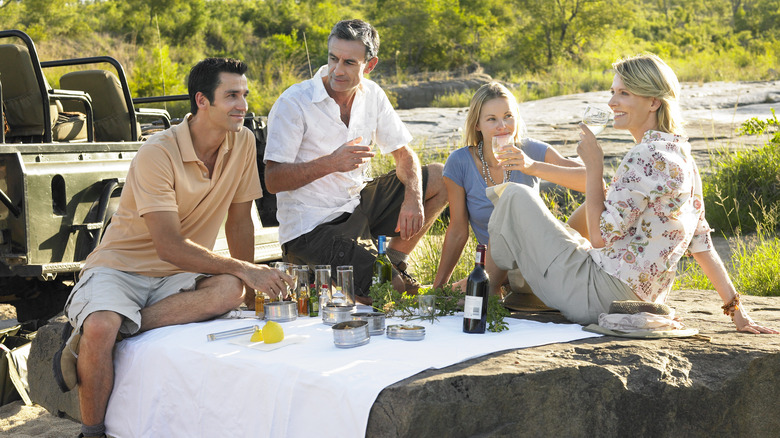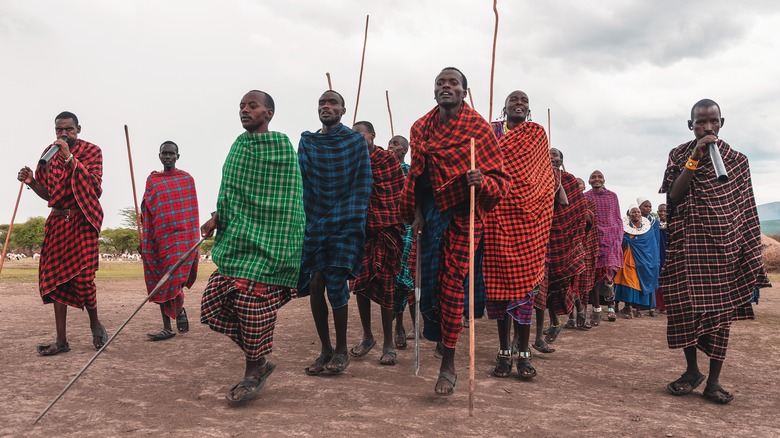African Safari: How To Choose The Right Safari For You
Only a few things can compare to the thrill of an African safari. Miles upon miles of savannah grassland hold the potential for an adventure like you've never experienced. Forget all those National Geographic videos you've watched. Take in the wilderness of Africa, not merely through your TV screen, but up close and personal. Guess what? Mufasa, Simba, and Pumba actually exist and they're out there somewhere in the wild expanse of the African plains, waiting for you to show up.
With so many options on the table, it might be a bit of a head-scratcher to find the right safari location. From the extensive East African prairies down to the southern deserts, there are plenty of magnificent places to choose from. While each location offers memorable surreal encounters with wildlife, there are unique differences that set them apart. So whether you want to experience the great wildebeest migration, get a first-hand view of a thrilling lion hunt, or see the majestic African bush elephant in all its splendor, Africa has it all. Here are a couple of pointers to help you out before heading out on your next (or first) African safari.
Think about accomodations
Accommodations are always a big deal when choosing your dream safari adventure. Regarding lodgings, it boils down to two main options: a safari lodge or a camping site. Safari lodges offer hotel-like services and come with plenty of amenities including hot showers, flush toilets, Wi-Fi, power sockets, and swimming pools. Meals are also included as part of the package with most offering buffets where you can sample a variety of foods, including local delicacies such as nyama choma and Kenyan chicken pilau. You can go for this option if you're looking for somewhere more refined.
Camping sites are also a viable option and come in two varieties. You have the option of a classic camping site, where you get to pitch tents in the great outdoors and spend the night in a sleeping bag or on a mattress. The tents are usually pitched in specific campsites that neighbor the parks, and thankfully, there's a support team to help you out in case tent pitching isn't really your strong suit. Bathrooms and toilets are a shared resource, so take note of that. You may opt to cook for yourself, but the support team will always be on hand to cater to your culinary needs.
Choose which landscape to explore
Africa is huge. With a land area of roughly 11.7 million square miles, this gargantuan continent has a lot to offer including a vast array of terrains. From the expansive savannah and grasslands that cover large tracts of land in eastern to southern Africa to the desert and semi-desert over the southwestern and northern regions, you'll be spoiled for choice.
The most frequented locations are often those covering the savannah. You may be wondering why. It's simple, these areas have an abundance of wildlife to see. The most famous game parks and wildlife reserves are located within this belt of terrain and contain some of the most sought-after animals. If you're thinking about the Big Five, including lions, leopards, cheetahs, elephants, or rhinos, they're all there. But hey, if you want to try something different, then there's the lovely Namib desert in Namibia with its unique blend of animals such as gemsboks and Namib desert horses. Botswana's Okavango Delta is also a worthy contender since it offers a unique ecosystem that even hosts endangered species such as the white rhinos.
Think about who you're traveling with
Maybe you're planning a solo safari trip to enjoy some quality alone time with all that nature has to offer. Or perhaps you want to take out your significant other for some one-on-one time, away from the daily hustle and bustle. You might even have a nice family vacation in mind, where you can take the little ones for some fun-filled thrills in the beautiful plains of Africa. Knowing who you're traveling with goes a long way in making proper preparations.
A growing number of solo travelers make their way to Africa each year, so if you're planning a solo trip, you're not alone. Matters touching on timing, safety, and the number of activities are definitely worth considering before booking your safari. Some safari options are geared toward solo travelers, whereas others encompass plans for children or couples. A little side note though, kids aged five and below might not be up for the adventure, especially if you plan to explore the wilderness by foot. Kids this young are also not able to join certain safaris.
Keep in mind the wild animals you want to see
Africa is home to some of the most unique animal species that you'll only find on the continent. And the best part is, these animals are in the wild, not in zoos, so you'll get to experience them in their natural setting. There are plenty of animals to see including a majestic lion, the highly-elusive leopard, the gracious gazelle, the nimble cheetah, and the mighty elephant, just to name a few.
Depending on where you decide to visit, the animal species will differ. Away from the savannah grasslands and in the semi-desert areas, particularly the Namib desert, you'll likely spot a few distinct animals, including the spotted hyena, the aardvark, the oryx, the aardwolf, and even the bat-eared fox. And it's not just terrestrial animals that you can look forward to. The skies also hold their fair share of amazing bird species with all sorts of colors and sounds.
Budget in advance
You've probably heard someone say, "failing to plan is planning to fail." Well, that's something worth keeping in mind as you sit down to plan your African safari adventure. There's plenty to think about from your plane tickets to the cost of accommodation, meal prices, game drive fees, alongside a few other add-ons like souvenirs or perhaps even a tip for the friendly staff. Transportation and hiring tour guides is likely to be among your biggest expenses. Budgeting is simply a matter you can't ignore and the sooner you do it the better.
Your budget will heavily depend on the length of your stay, the size of your travel entourage, and the season. The best option may be to look for reputable travel companies with proven track records for amazing travel packages, which include a private tour guide, meals, accommodation, on-the-ground transport, and pick-ups and drop-offs from the airport. Getting a package can save you lots of time and money by helping you avoid the hassle of booking everything individually. Plus, you'll save yourself from the temptation of tipping every resourceful person you meet.
Choose whether to go on a self-drive or hire a tour company
To go solo or to go together? That is the question. Well, each option has its pros and cons. If you're the type who wants to do it alone and embark on a safari in a rented car, that's totally okay. There are plenty of car rental services you can choose from, just be sure to do your due diligence. It's always wise to book using a well-known travel company and a quick search should yield some reliable results. A couple of extra handy tips when going on a self-drive safari: have a map of the area (yes, that includes a conventional printed-out map), ensure you have a four-wheel drive vehicle because of the terrain, and note down a couple of easy-to-reach contacts in case of an emergency. The downside? Navigating through unfamiliar terrain means you may get lost or stuck.
Hiring a tour company would be an excellent choice if you prefer a more relaxed experience. Aside from having the necessary experience in terms of terrain and location, a travel agency also takes care of pretty much everything, including scheduling safari drives, so you don't have to. Also, they tend to know where all the best spots are to get awe-inspiring shots of the animals. In the end, it's all a matter of personal preference.
Consider transportation options
The rugged African savannah isn't something to underestimate, especially when it comes to transportation. Sure, once you land at the airport, the smooth tarmac carries you along nicely but once you hit the safari trail, things get rough pretty quickly. You'll need something gritty that can handle everything the tough terrain throws your way. 4x4 Landcruisers are a fan favorite because of their handling. They're super robust to get you up those challenging sections of your safari and their seats make for a very comfy ride. Also, their pop-up roofs offer some truly amazing views and give you a chance to capture some remarkable shots.
For a more breathtaking experience, you could hop on a hot air balloon. The aerial views of the savannah give you a deeper appreciation of its sheer vastness while affording some unique glimpses of wildlife in a way you've never seen. If the whole hot air balloon isn't your thing and you'd prefer something with actual wings, you can still explore the plains onboard a light airplane for a similar aerial view. But again, there's always the good old-fashioned walk. Be sure to hire a professional guide to offer you tips and paths to mind-blowing spots.
TIming is everything
They say timing is everything. Well, that's true when choosing your safari adventure because a wrong choice could lead to some disappointments. While Africa doesn't have the type of weather you'd expect at higher latitudes, it does experience seasons, heavy rains, and hot sun. If you're planning an East African safari, say in Kenya or Tanzania, June through September would be an ideal choice. This period works for two reasons — not only is it cooler and drier than other times of the year, but you also get the chance to view the famed animal migration as roughly 2 million wildebeests, including herds of zebras and antelopes, make the perilous journey from Tanzania's Serengeti National Park to Kenya's Masai Mara, across the crocodile-infested Mara River.
If you opt for a Kenyan safari at a later time of the year like between November and December, chances are you'll experience wet spells as the short rains pour down. But not to worry, the sun always shines through, quickly transforming the gloomy-looking sky bright again. Interestingly, after heavy rains, the sun shines for a few hours, and that's enough to make you forget that it ever rained because the soil dries completely. If you want a less-crowded safari experience, consider booking your safari any time from March through May. Parks and game reserves tend to have their low season during that period, meaning you will typically pay less for the same services.
Decide how long your holiday will be
Two days? Maybe three? A week perhaps? When it comes to planning your safari, shorter trips are doable but anything less than three days may not give you the chance to enjoy what the great African outdoors has to offer. Of course, the length of your stay rests on a couple of factors. First things first, your safari location. If you'll be at a bigger park, say the Masai Mara, then you'll probably need a solid week to get enough time to explore. Secondly, consider the kinds of wild animals you want to see. If you're keen on catching a glimpse of rarer animals like the leopard, you might have to stick around a bit longer because they are more active at night.
If you're a first-time safari goer, why not plan for a longer trip? Plan for a full week or two to ensure you're able to savor the thrills of the African bush and build some fond memories you'll be proud to tell your grandkids about. Last but not least, you may want to think about how much you're willing to spend, as a bigger budget affords you a longer stay.
Consider places to eat
There's nothing like a long game drive to stir up your appetite. After taking in the sights and sounds of the open grasslands, you'll need to give your tummy (and taste buds) some tender loving care. Your choice of where to eat largely depends on your destination. If you're staying at a safari lodge, meals are often part of the travel package, and that includes three meals a day. You can look forward to a scrumptious yet light breakfast, a lovely picnic lunch out on your game drive, and a savory sunset dinner. You may also carry along a couple of snacks (think dried fruits or nuts) while you're out and about on safari drives.
Mobile safaris essentially entail a portable camp that moves with you as you go along on your exploration exploits. But don't let the term "camp" trick you into thinking you'll be out there all alone in the wild expanse of the African savannah struggling to whip up a meal over some campfire you struggled to start. Look forward to delightful safari dishes every day prepared by excellent chefs. While you may not get the same expansive menu that a lodge would afford, you'll still get exquisite options to satisfy you. If you find yourself wanting a snack, walk around in the community to find places to try some of the local cuisines.
Decide which cultures you want to experience
No safari would be complete without getting to indulge in some of the local cultures. Africa's rich and diverse cultural heritage stems from the roughly 3,000 tribes on the continent with some of the most renowned communities being the Maasai in Kenya and Tanzania, the Himba of Namibia, and the Khoisan in South Africa. The Maasai still hold on to many of their cultural customs and if you decide to visit them on a safari, you can take a tour of a Maasai village and get to see what a typical day there looks like. If you're up for it, test your jumping skills in the renowned Maasai dance and grab the vibrant Maasai shuka as a souvenir.
If you're in South Africa, you may want to take in some of the Khoisan cultures. Though the Khoisan people have had a challenging past, they still hold to a lot of their traditions and possess an incredible knowledge of their environment. You can learn more about how they're able to use diverse plants for their medicinal benefits and how they established themselves as highly successful animal hunters. While you're at it, why not learn a Khoisan word or two? Its unique clicking sounds to make it one of the most fascinating languages you'll ever hear.
